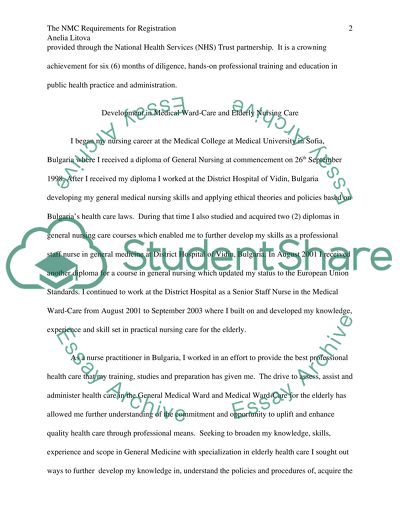Cite this document
(“The NMC Requirements for Registration Essay Example | Topics and Well Written Essays - 1500 words”, n.d.)
Retrieved from https://studentshare.org/health-sciences-medicine/1532844-the-nmc-requirements-for-registration
Retrieved from https://studentshare.org/health-sciences-medicine/1532844-the-nmc-requirements-for-registration
(The NMC Requirements for Registration Essay Example | Topics and Well Written Essays - 1500 Words)
https://studentshare.org/health-sciences-medicine/1532844-the-nmc-requirements-for-registration.
https://studentshare.org/health-sciences-medicine/1532844-the-nmc-requirements-for-registration.
“The NMC Requirements for Registration Essay Example | Topics and Well Written Essays - 1500 Words”, n.d. https://studentshare.org/health-sciences-medicine/1532844-the-nmc-requirements-for-registration.


